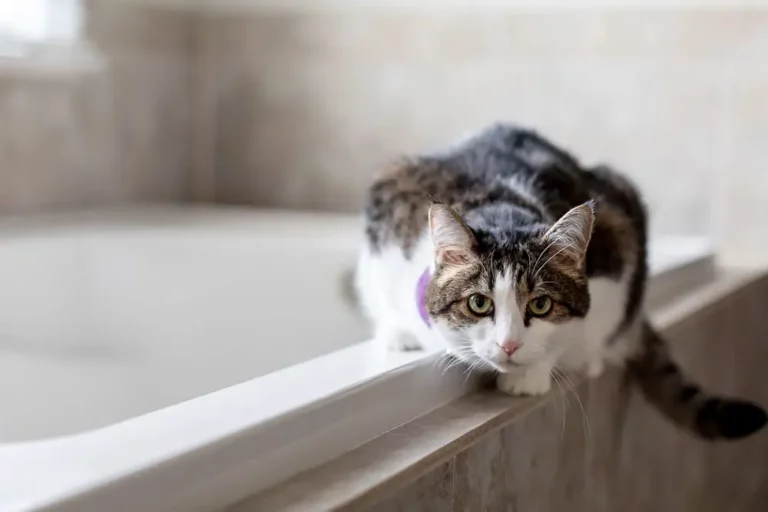Why Does My Cat Lick Me Then Bite Me?
The answer to the question, “Why does my cat lick me then bite me?” is not so straightforward. Cats use licking as a way to show affection and bond with their owners, but sometimes a gentle lick may escalate into a playful bite if the cat gets overly excited. We’ll explain why this behavior occurs and how you can help your pet become more comfortable around you.
What Is Flurry Biting?
Flurry biting or suckling is a common behavior among cats and is usually seen when the animal is feeling particularly playful or affectionate. During the flurry bite, a cat will quickly nip its owner repeatedly while licking them. This play-like aggression helps to redirect the cat’s high levels of energy in a safer way and helps to satisfy their desire for attention.
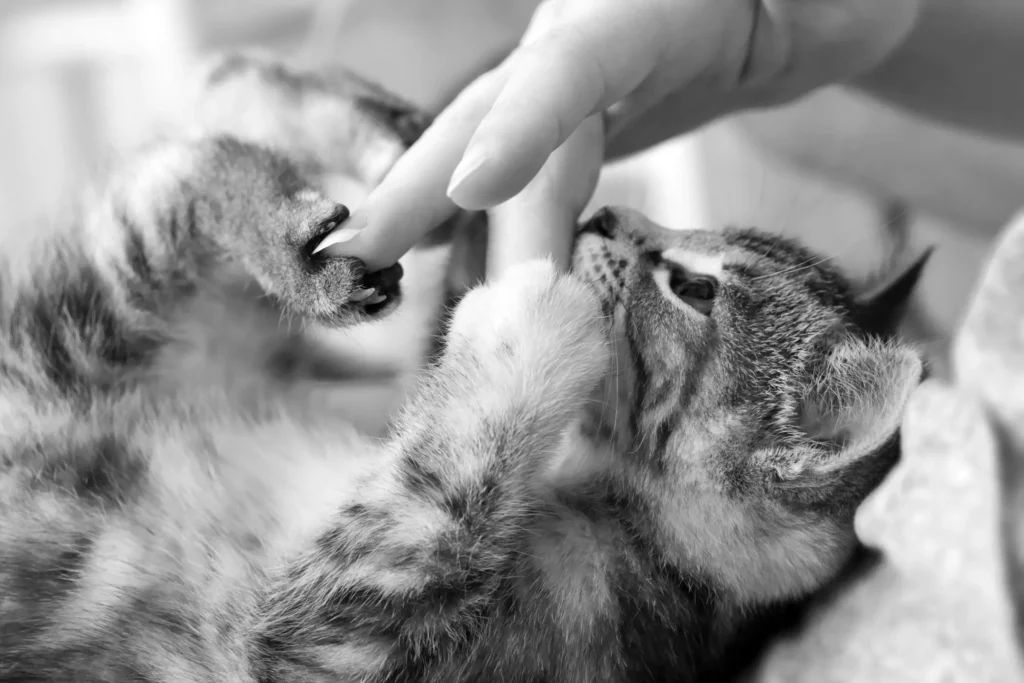
Extreme Discomfort as a Result of Grooming
Cats can also become uncomfortable when they are grooming themselves. When a cat self-grooms by licking its fur, the wetness and friction from their tongue can sometimes cause a ticklish sensation. When this happens, the cat may bite out of surprise, leading it to think that its owner was the one causing the discomfort.
The Awe and Fear of Attention-Seeking
Cats that lick and then bite often do so because they are seeking attention from their owners. This behavior, known as “petting-induced aggression,” may be due to an overload of stimulation or the cat being overwhelmed by its environment. By licking first, cats can test the waters and show signs of affection, but when receiving too much attention, they may react defensively. If a cat repeatedly bites after pre-grooming licks, it may be best to give the pet some space.
Your Cat’s Show of Unconditional Love
Even though it may seem odd and alarming, occasional licks and bites are your cat’s way of expressing their unconditional love for you. In general, cats will not bite if they do not feel safe or comfortable; they also accept that they’re vulnerable to their owners. Therefore, as long as its biting is relatively gentle and infrequent, it can be interpreted as a friendly sign of affection between the two of you.
Provide an Outlet for High Energy
In order to avoid their cats biting them, some owners might want to provide an appropriate outlet for the cat’s pent up energy. This could include strategically placed scratching posts or toys which elicit the appropriate behavior when played with. Additionally, interactive playtime is a great option that helps the cat get out their energy while having fun and bonding with their owner. Stimulating environments are important to keep cats from getting bored, as boredom can lead to licks becoming bites in frustration.
No products found.
Why does my cat bite me gently while purring?
Cat bites while purring can indicate a variety of things, such as increased playfulness, affection and communication. Cats may also bite gently during their beloved petting sessions in order to tell their humans that it is time to stop. Biting should never be seen as aggressive or hostile behavior – your cat is simply trying to communicate with you in the best way she knows how!
Why does my cat lick and bite my face?
Cats often lick or bite their owners’ faces as a greeting, a sign of affection, or to assert dominance. They may see your face as part of their territory and reach out to mark it with scent. Cats may also groom you because they recognize the physical similarities between humans and cats — both have fur and whiskers!
What does it mean when a cat bites you affectionately?
When a cat bites you affectionately it usually means they are feeling content and happy. A gentle nip from your kitty is a sign of their love and trust in you. This form of cat-on-human communication is often referred to as love bites.
How can you tell if a cat has imprinted on you?
Signs that your cat has imprinted on you include following you around the house, responding to their name when called, seeking out physical contact, giving love bites and kneading you with their paws. Another sign of imprinting is if your cat vocalizes more when you’re near or meows more frequently in response to hearing your voice.
Why Do Cats Rub Against You and Then Bite?
Have you ever been happily petting your cat only for them to turn around and bite you? You may be wondering why cats show affection one moment, then seemingly attack without warning. The answer lies deeper than this behavior — let’s take a look at why cats rub against us then bite.
Understanding Your Cat’s Instincts.
Understanding your cat’s basic instinctual behavior is key to interpreting their rubbing against you and biting. Cats are natural hunters and they like to stalk and catch animals, humans included. When they rub themselves on you they’re claiming their territory by marking you with their scent so they can keep track of you. This also sets them up for a good pounce position before they attempt to bite.
Cats Show Affection Through Rubbing and Biting.
Despite the fact that it may seem counterintuitive, cats show affection by rubbing against you and then biting you. When they rub against you in a hugging or head-butting motion, they’re reminding you of your bond together and signaling to other animals that you are part of their “pride.” Additionally, cats may bite when playing as an indication of their enthusiasm for playtime. Although this behavior may seem aggressive, if kitty is only lightly biting or licking your hand or feet, she’s just saying “I love YOU!”
Aggression Can Lead to Unexpected Bites.
In some cases, cats may bite to express aggression or because of an underlying medical condition. Cats that are aggressive may become overly stimulated and end up inflicting an unexpected bite; this is your cat’s way of trying to say “stop” before the situation escalates. If a kitty is consistently biting out of aggression, it’s best to speak with your veterinarian right away in order to find alternative ways of addressing the issue.
Create a Positive Environment for Your Cat.
Whether your cat bites out of aggression or not, it is important to create a safe, stress-free environment for the animal. Providing everything from the right kind of food and fresh water to daily litter box cleaning and grooming will help ensure that your kitty has its basic needs met on a regular basis. Additionally, engaging in especially calming activities like regular play time as well as brushing and petting can make your cat much more content, helping them to feel more confident and secure with their environment.
Learn How to Read Your Cat’s Body Language.
Cats communicate with us through their body language as much, if not more than, any vocalizations. When a cat rubs its head against your hand and then bites you, it is communicating to you that it’s getting overstimulated. To prevent cats from overstimulating themselves when interacting with humans, be sure to watch for signs of stress such as excessive meowing, quick tail flicks, ears laid firmly back or folded down at the tips. When cats show signs of stress or anxiety like these, prompt them to calm down by redirecting its attention away from you and onto an interactive toy or treat dispenser.

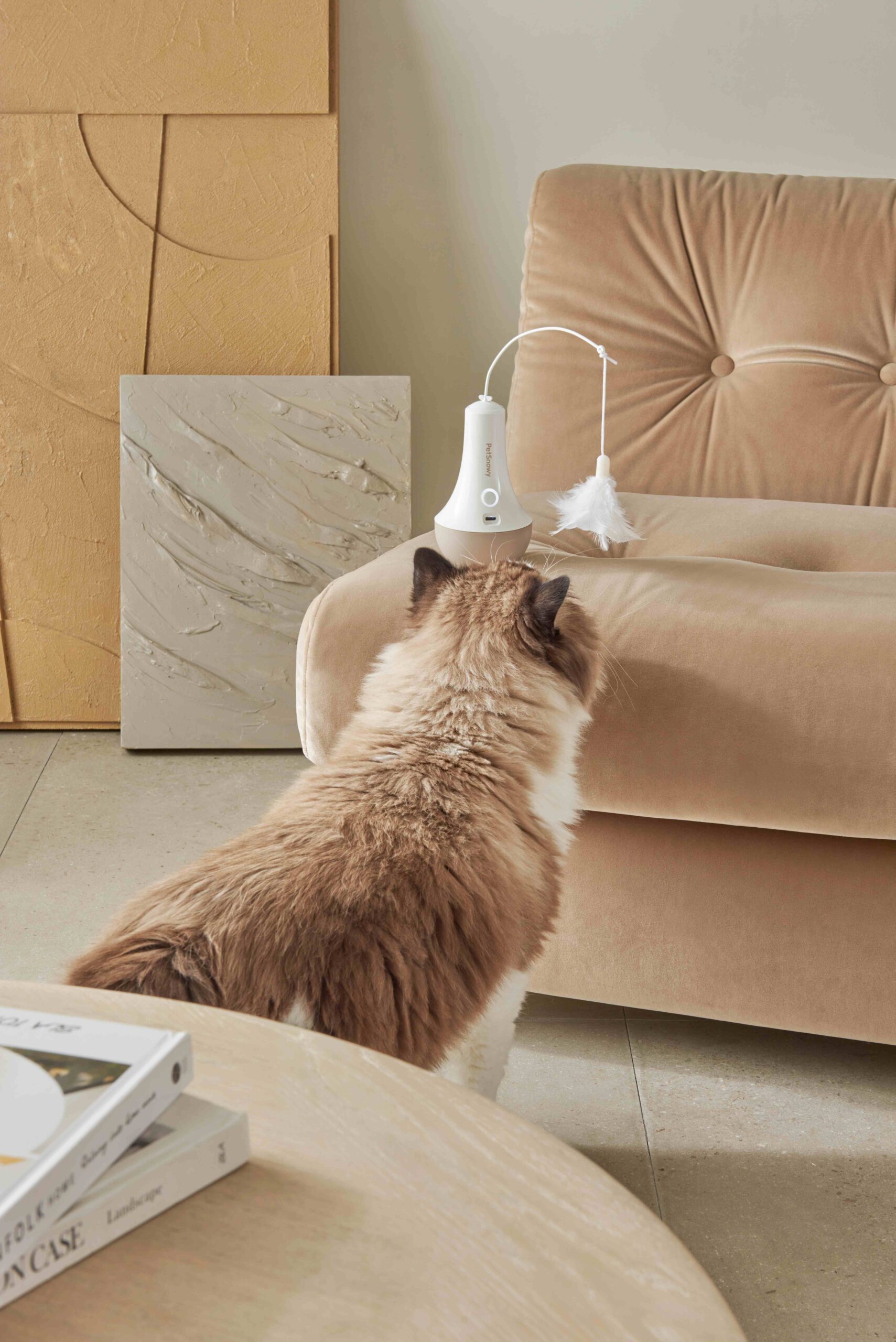
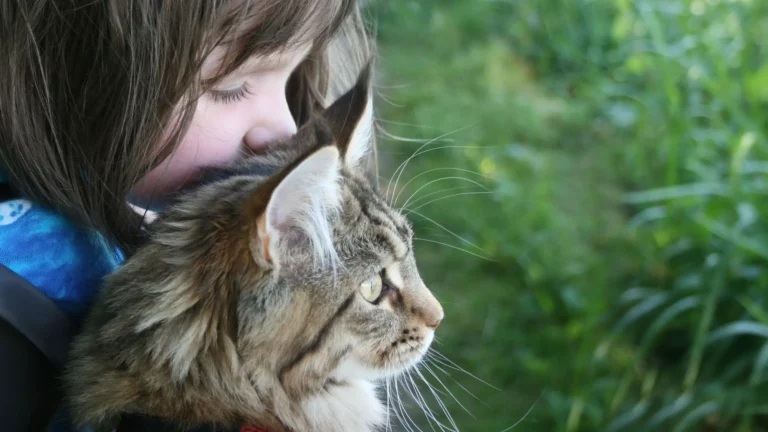
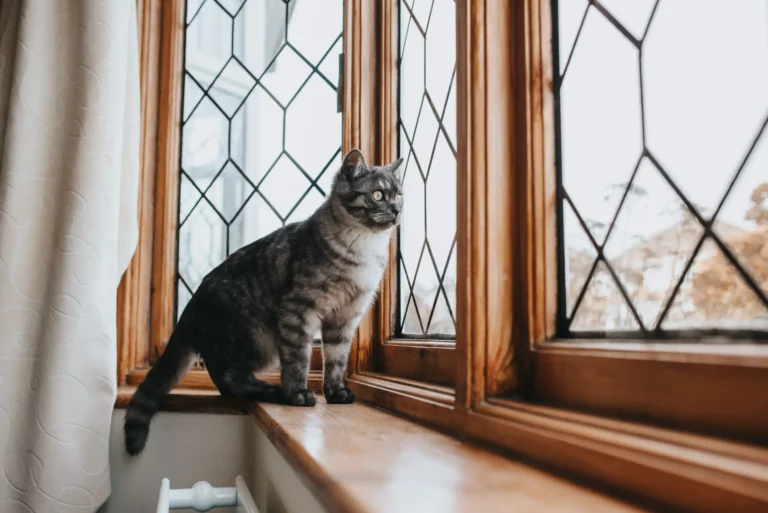
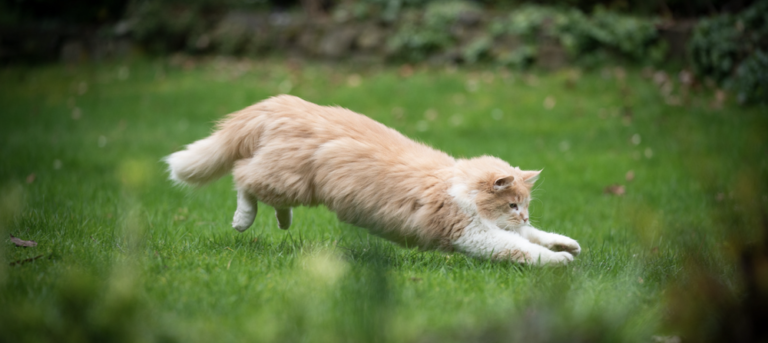
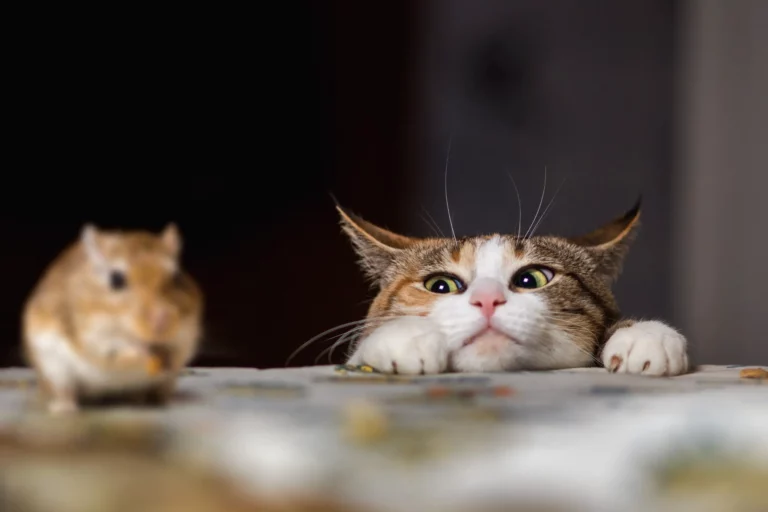
![Why Do Cats Paw Around Their Food Bowls? [7 Reasons]](https://www.warmlypet.com/wp-content/uploads/2023/01/Cat-paws-in-a-bowl-768x513.webp)
